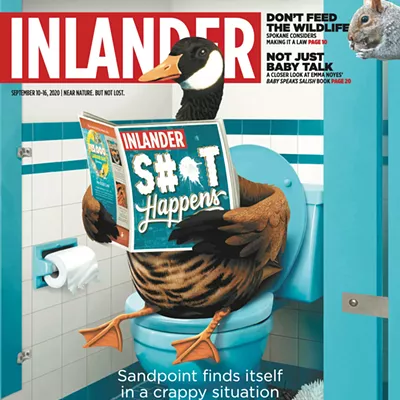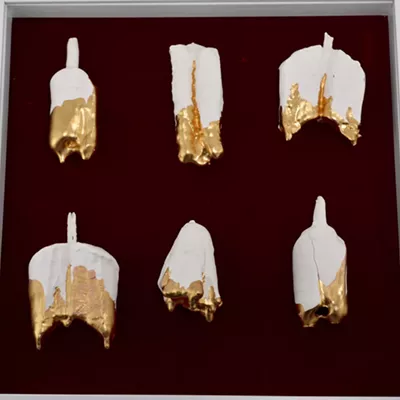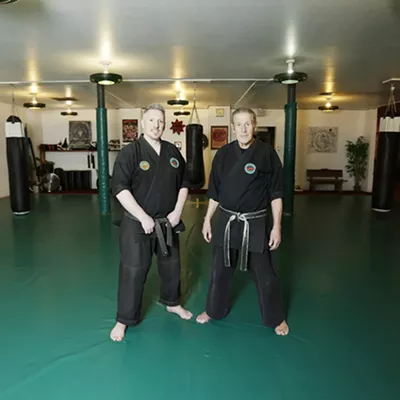As Sandpoint pianists Melody Puller and Matt Goodrich dug deeper and deeper into the repertoire for their new concert featuring Latin American music, titled Camino del Corazón, they found themselves spoiled for choice.
"What was stunning to us was just how many composers there were, just how many piano works there were. It was actually hard to narrow down," Goodrich says. "We'd text each other late at night. 'How about this?' 'Listen to this.' 'Do you love this?' 'Look what I found."
"Yeah," Puller says, laughing. "The problem is that we said yes to every one."
Ultimately they made the hard choices, and the resulting program (performing at four venues around the Inland Northwest) ended up with a mix of the recognizable — names like Astor Piazzolla, Alberto Ginastera and Heitor Villa-Lobos — coupled with once-famous composers waiting to be rediscovered by contemporary audiences.
For instance, the Venezuelan-born composer Teresa Carreño, who's represented by the piece "Mi Teresita," was invited to the White House to play for Abraham Lincon when she was 9 years old.
"She was a composer, she was a conductor, she was an opera singer and a pianist. She was known as the Valkyrie of the Piano. Amy Beach and Edward MacDowell both dedicated compositions to her," Puller says.
And while Carreño has a good 75 original works to her name, Puller says she chose to perform "Mi Teresita" because it's a "sweet little waltz" that helps demonstrate the range and nuance of Latin American piano music. It also introduces a biographical element, as Carreño dedicated the piece to her daughter.
Pedro Humberto Allende is another name that might not immediately ring a bell outside his native Chile today, though he was celebrated during his lifetime by the likes of Claude Debussy and Florent Schmitt. Puller is performing several selections from his "Tonadas de carácter popular chileno" ("Chilean folk songs)."
"I absolutely fell in love with the Allende pieces because they're simultaneously very Chilean — they have the folk song and folk dance elements to them — but they're also very impressionistic in the French tradition. And so they're just this wonderful hybrid," Puller says.
Goodrich, meanwhile, will mostly be alternating with Puller during the concert to perform pieces by Brazilian composer Ernesto Nazareth, including his "Apanhei-te, cavaquinho" ("I've Caught You, Little Guitar"), and Argentina's Alberto Williams.
"With the last name of Williams, he's a composer that you wouldn't even think would be Argentinian. But he was one of the first Argentinian composers to create kind of an Argentinian national sound in his music," he says.
"The piece I'm playing, 'The Abandoned Ranch,' was the piece that put him on the map. He had a very long and storied career, and this is a very early piece, so it's a very interesting snapshot of when he was really getting going."
After hearing Goodrich perform it for the first time, Puller said the piece reminded her of the styles more often associated with Schumann, Brahms and Satie.
That actually highlights an important thread that both pianists are hoping audiences will pick up on, namely, the musical cross-pollination between Europe and Latin America. During the 19th century, even as many South American countries sought to shake off their colonizers, there was still an active transatlantic cultural exchange that influenced how their homegrown music developed.
"A lot of these composers we're featuring wound up bringing back what they learned [in Europe] but then incorporating their own sense of culture and nationalism and building their own unique voice. They started melding South American native rhythms and folk songs and sounds into this more classical, established structure," Goodrich says.
Even the piece by Piazzolla might hold a surprise or two. Although he was renowned as the father of nuevo tango, the Piazzolla work that opens the concert — a four-hander called Soledad ("Solitude") — is, as Goodrich describes it, "a little less funky than 'Libertango' or 'Four Seasons' or a lot of what he's known for."
"But you'll hear the tango element," he continues, "and we have to recreate it at the piano with four hands — the whole tango orchestra, the violin, the bandoneon, the bass, the guitar."
All told, this program travels to seven countries: Argentina, Brazil, Ecuador, Colombia, Venezuela, Chile and Mexico. And the concert itself is on the move as well. Puller and Goodrich will start on April 4 at their homebase, the Music Conservatory of Sandpoint, and then bring Camino del Corazón to venues in Spokane Valley, Coeur d'Alene and Moscow over the following two days. ♦























